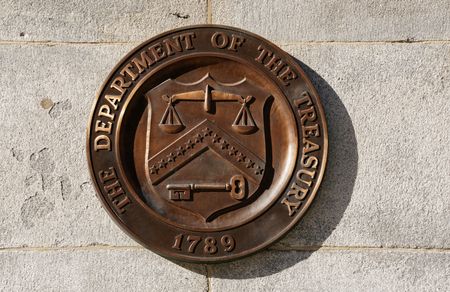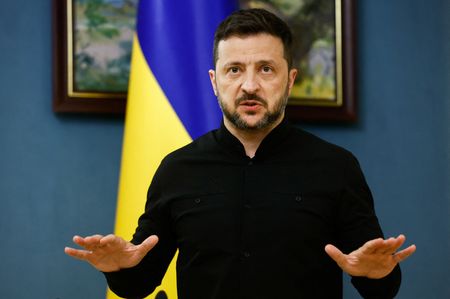By Jan Strupczewski
BRUSSELS (Reuters) -The EU will propose to G7 finance ministers this week to lower the current $60 per barrel price cap on Russian seaborne oil as part of the new sanctions package against Moscow, European Economic Commissioner Valdis Dombrovskis said on Monday.
Dombrovskis did not mention the level to which the European Union would want the price cap lowered, but EU officials briefed on the discussions said the EU would propose $50 per barrel.
Asked by reporters if he would make the proposal to lower the cap at the G7 finance ministers’ meeting in Canada this week, he said: “Yes.”
“This is something which we flagged from the Commission’s side in the context of the 18th sanctions package. I would expect some interest also from other G7 partners in this regard and some discussion,” he said.
The G7 countries include the United States, Canada, Britain, France, Germany, Italy and Japan. The European Commission and the chairman of euro zone finance ministers also take part in G7 finance ministers’ meetings.
The G7 price cap was agreed in December 2022, banning trade in Russian crude oil transported by tankers if the price paid was above $60 per barrel and prohibiting shipping, insurance and re-insurance companies from handling cargoes of Russian crude around the globe, unless it is sold for less than the price cap.
The measure was meant to diminish Russia’s revenues so that it has less money to pay for its invasion of Ukraine while at the same time preventing a sharp drop in global oil supply.
Russia has been bypassing the G7 price cap through a “shadow fleet” of tankers that do not get their insurance from western companies and Russian Urals crude has been trading above the price cap for much of the time.
But the price has fallen below $60 in early April, as global concern about economic growth in the wake of U.S. announcements on global tariffs hit oil prices as well.
(Reporting by Jan Strupczewski, Editing by Louise Heavens and Emelia Sithole-Matarise)











